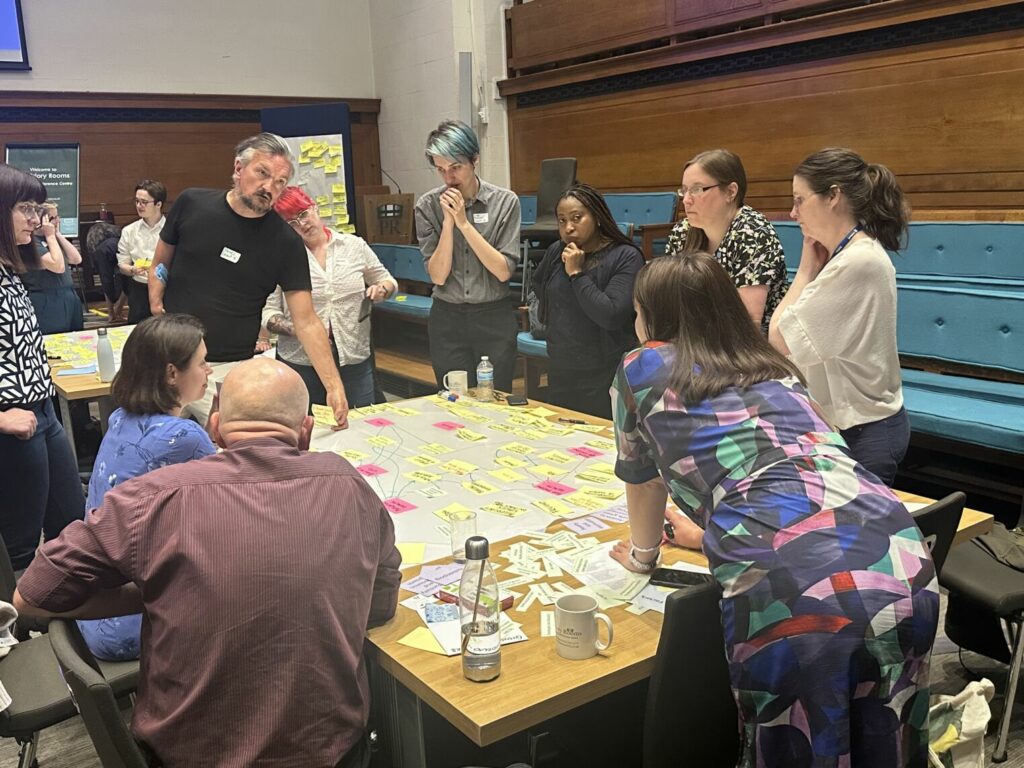
Participatory Systems Mapping (PSM) for Climate and Health Policies
The WM-Net Zero project is using Participatory Systems Mapping (PSM) to bring together stakeholders from across the West Midlands to co-create pathways toward sustainable and health-centred policies in transport, housing, and energy. In a series of interactive workshops, groups of 10-12 participants—including representatives from local authorities, government bodies, charities, consultancies, and academia—will help map out the complex factors that affect and are affected by climate and health policies. This collaborative process is designed to identify key points of intervention within these systems, making it easier to find solutions that maximize benefits and minimize trade-offs.
The insights from these initial workshops will contribute to detailed, interconnected maps for each sector. These “living maps” will be updated regularly with input from ongoing research, policy changes, and community feedback, ensuring they stay relevant and adaptable. By involving the Public Involvement Group and other community stakeholders, we’re creating a dynamic, evolving tool that not only guides immediate policy decisions but also serves as a lasting resource for future initiatives.
Ultimately, this approach will help the West Midlands region “stress test” Net Zero options, considering potential risks, benefits, and unintended consequences before implementing new policies. This way, we ensure that the policies selected are resilient, effective, and have a meaningful, positive impact on both the climate and community health.


